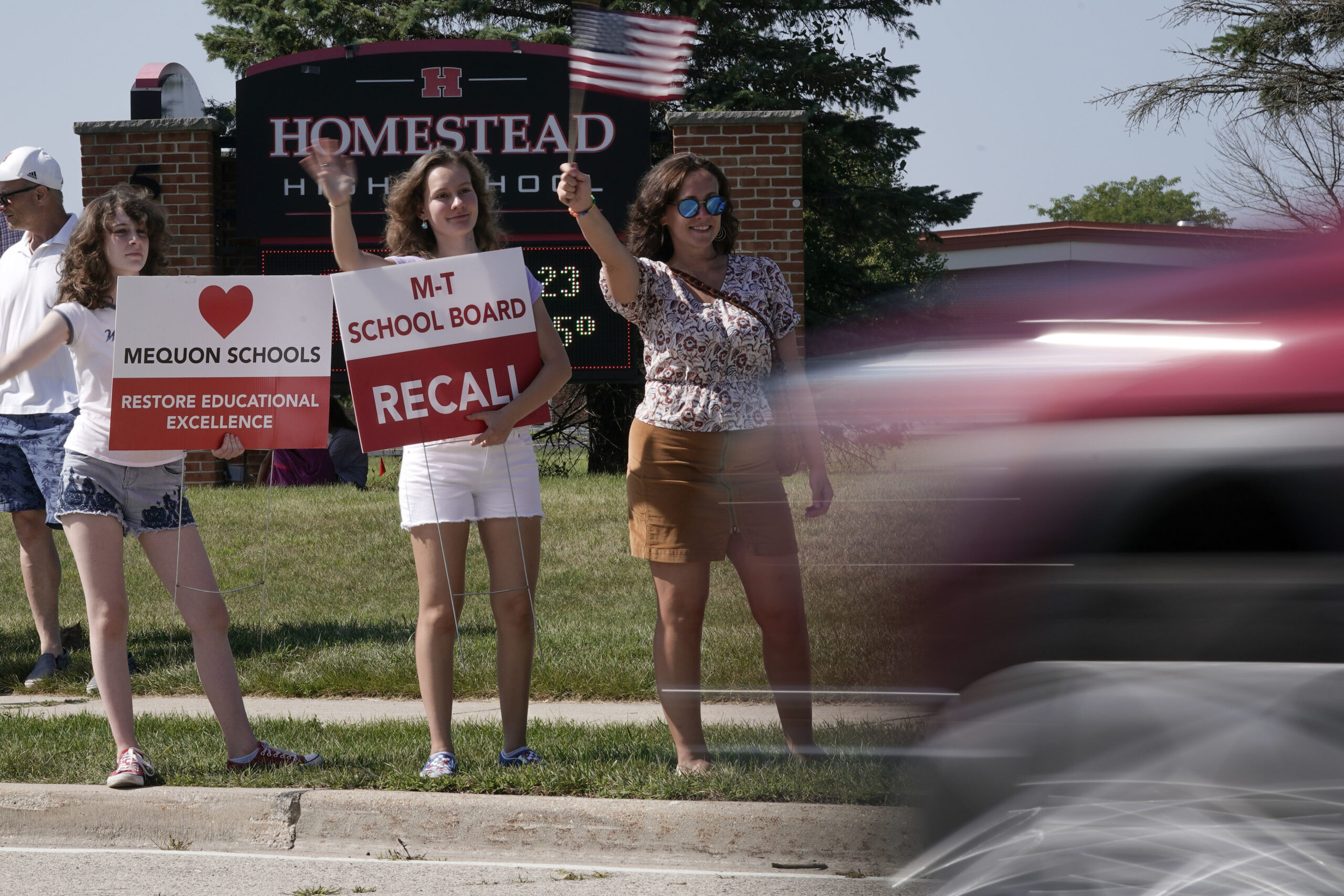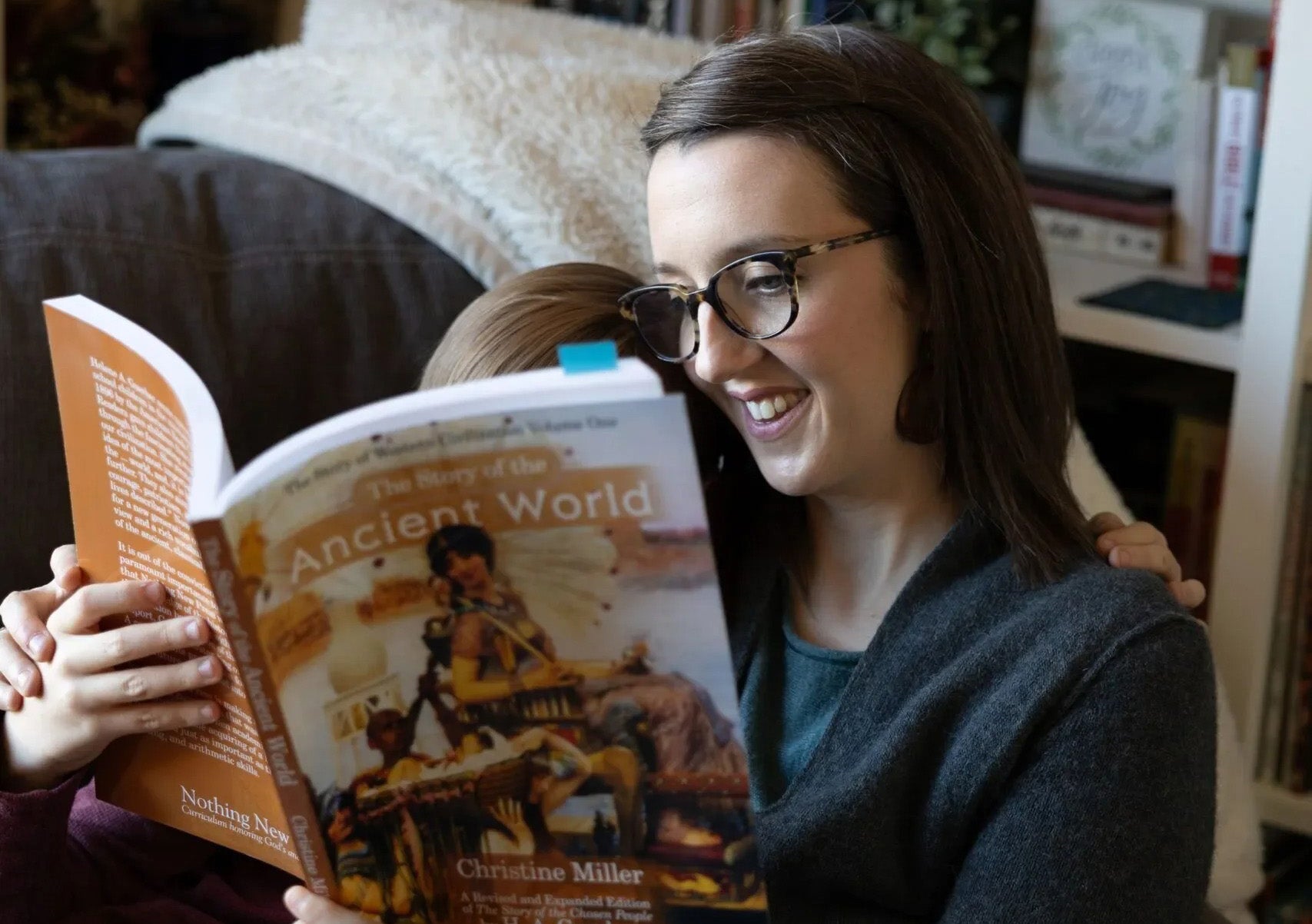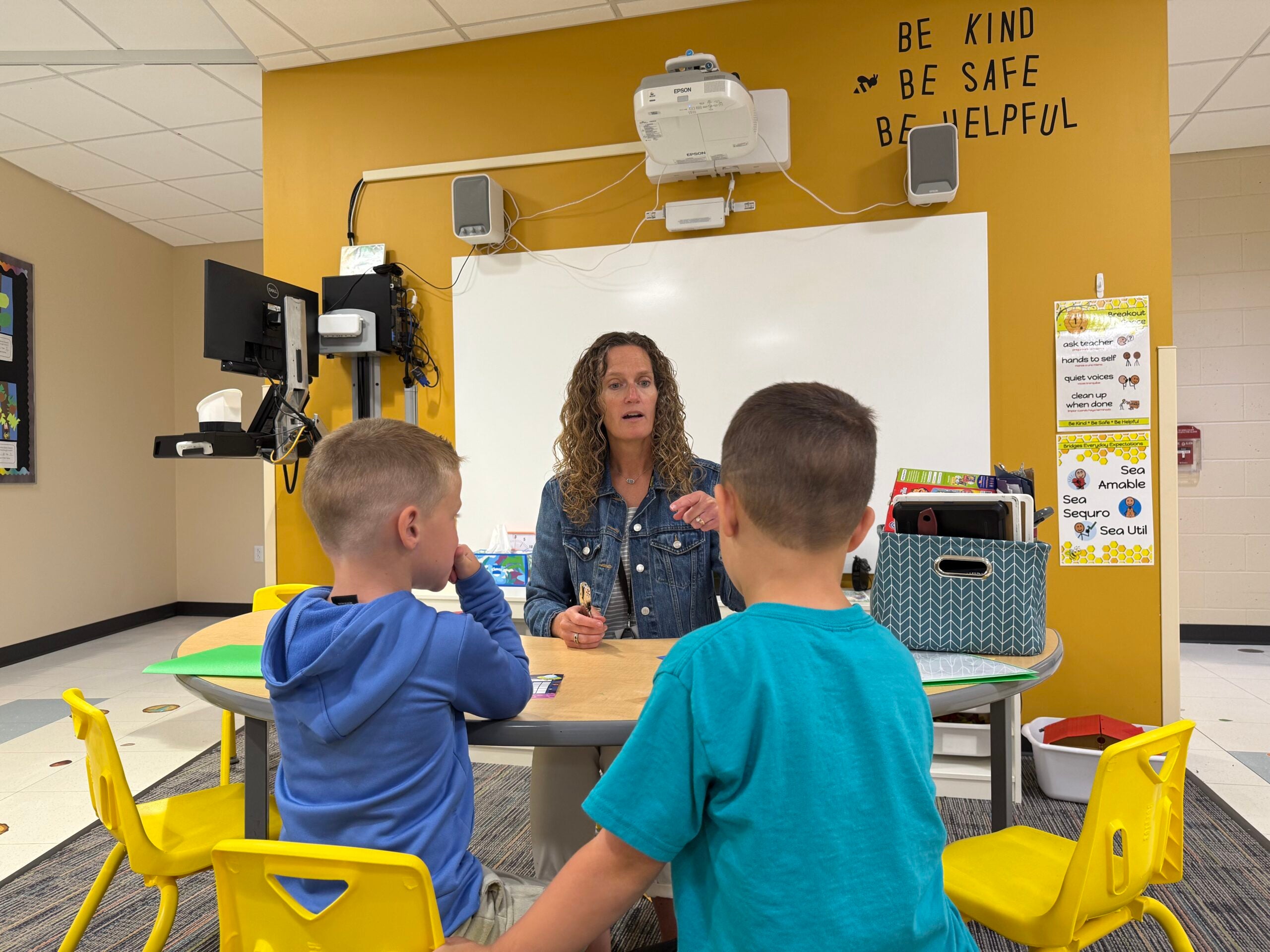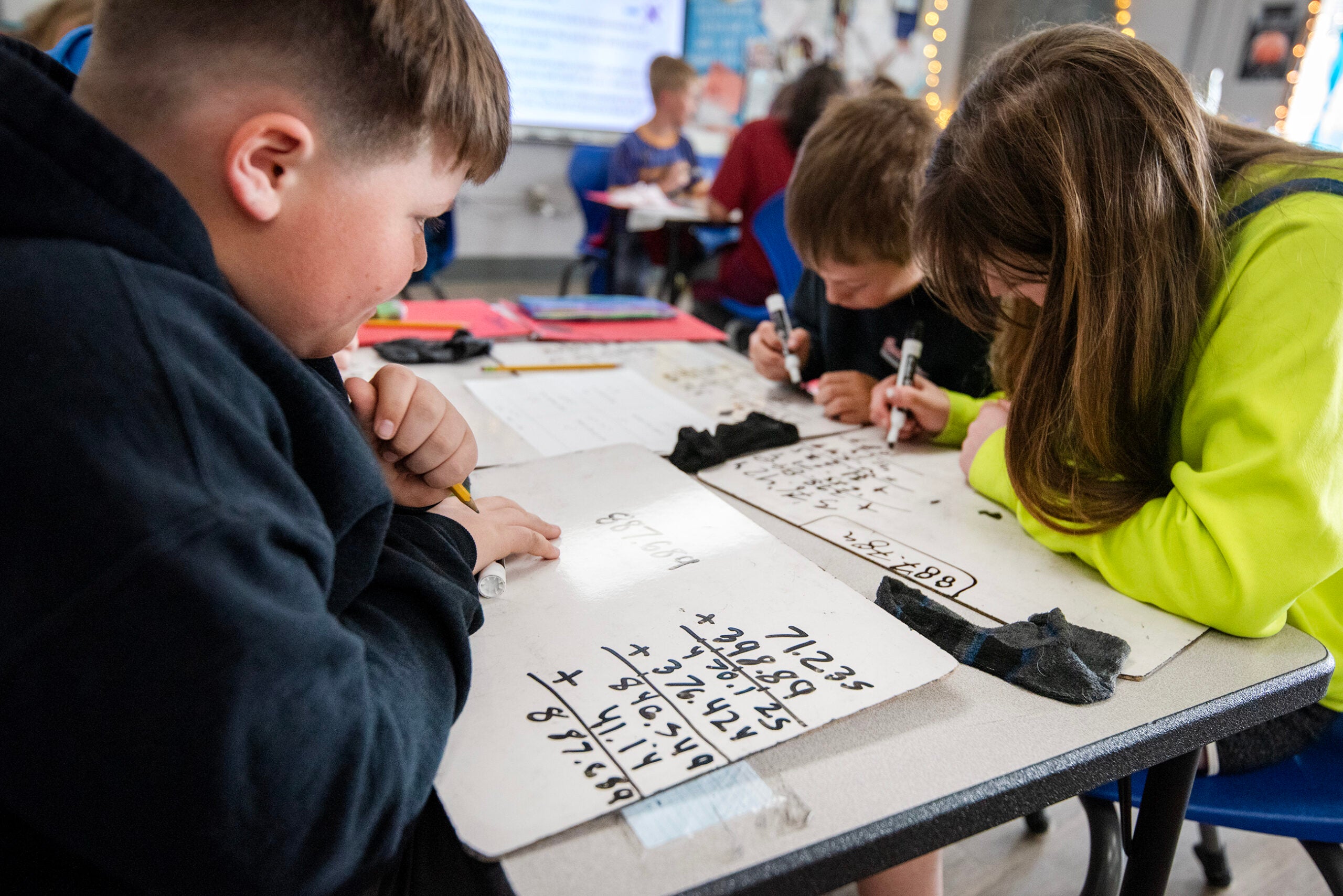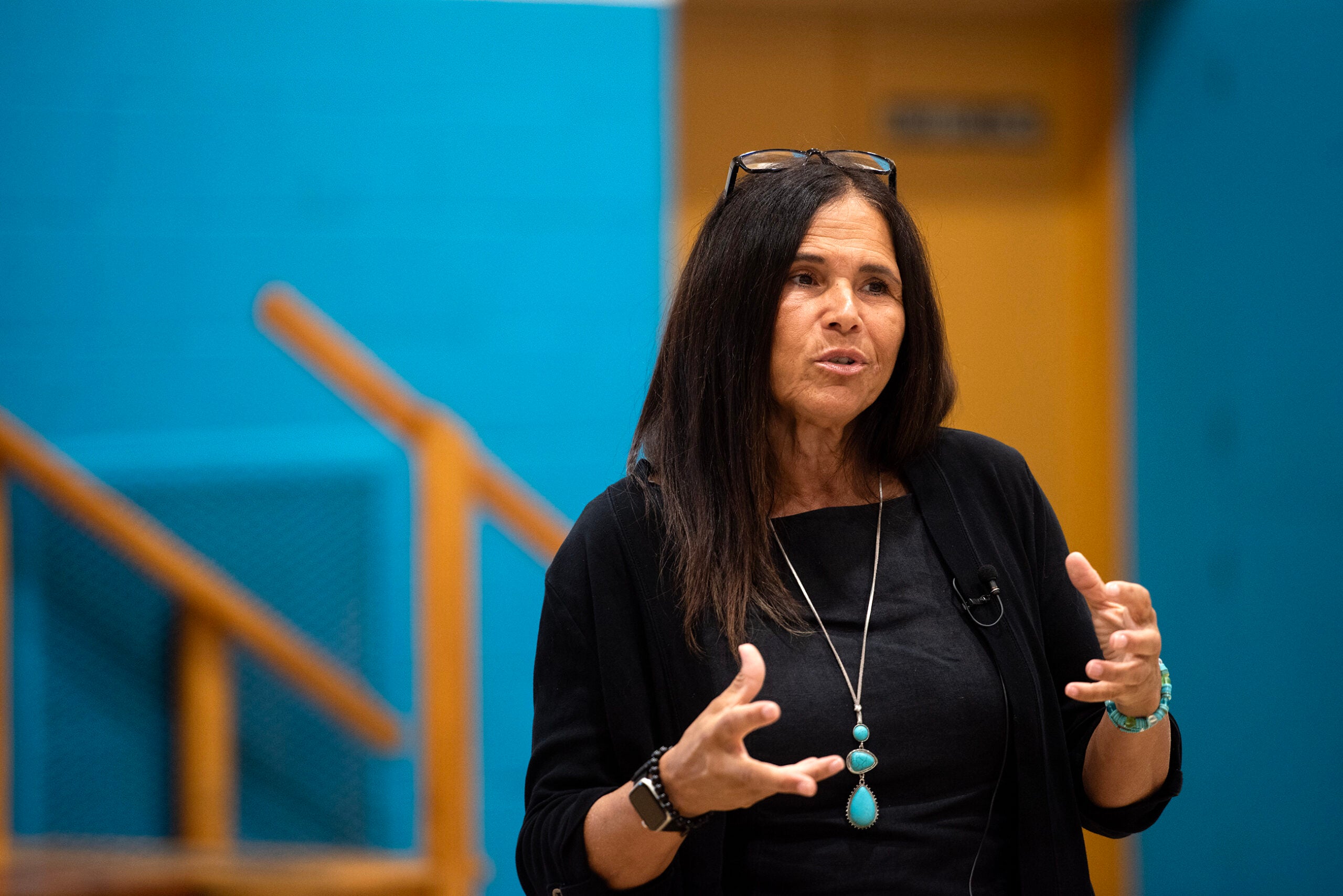Wisconsin schools have long been battlegrounds for political bickering, where subjects like sex education, Common Core state standards and evolution become weapons of partisanship.
In early 2020, the COVID-19 pandemic threw more political footballs. Fights over virtual learning, masks and other COVID-19 precautions set the stage for deeper divisiveness over issues like sexual orientation, gender identity and race.
In part because of these issues, schools are also where legal advocacy organizations are putting new resources.
News with a little more humanity
WPR’s “Wisconsin Today” newsletter keeps you connected to the state you love without feeling overwhelmed. No paywall. No agenda. No corporate filter.
The conservative legal group Wisconsin Institute for Law and Liberty recently hired an attorney who’s focused specifically on education issues. In her new position, Cory Brewer will expand the organization’s work on parental rights and school choice.
“I plan to focus on a broad spectrum of issues, including making sure students have access to high quality schools across the state, curriculum transparency and making sure that schools follow the constitution in enacting policies that respect and empower parents and their constitutional right to direct the upbringing of their child,” Brewer said.
Even before Brewer was hired, the organization has been working on school issues for years. It supported a legislative effort to create a parental bill of rights that would permit parents to review instructional materials and determine which pronouns are used for their children. And, WILL is currently suing the Madison and Kettle Moraine school districts over guidance to staff to use kids’ preferred pronouns and gender identity without first running it by parents.
WILL has also been supportive of plans to expand the state’s school voucher programs and create a new body to approve charter schools. It’s intervened in school district battles over masking policies, issues around race and what books are available in school libraries.
The Wisconsin chapter of the American Civil Liberties Union, which often champions liberal causes, has also focused more heavily on schools, in large part through the work of its Equal Justice Works Fellow, Elizabeth Lambert, who started a two-year fellowship with the organization in September 2020.
“I think the conservative movement kind of got out in front of (the schools issues), using masking and COVID restrictions to galvanize the interest of their base in participating in these local elections and just local political activity, and has been really effective at building on that,” Lambert said. “The folks that are interested in preserving kids’ rights to schools that are inclusive and that teach a full, complete version of American history and represent all kinds of lived American experiences in curriculum and in the libraries, that group is recognizing that it really needs to engage.”
For both major political parties, experts say focusing on school issues is a strategically savvy move. School issues tend to be especially weighty in the suburbs, whose residents played an important role in the outcome of the past two presidential elections. Education has been a top issue for voters in recent elections, so building momentum around school-based issues in the run-up to the midterm and gubernatorial elections may help galvanize voters. That’s led political action committees and other groups to pour resources into school issues.
Brewer said parents’ focus has shifted to some of the issues WILL is working on in part because of the disruptions of the last two years.
“Some of the most salient issues around K-12 education right now involve curriculum transparency, and I think in part that became an even more important issue to parents during the pandemic with virtual learning and parents getting to see what their kids are learning,” she said.
But Lambert said education is always a hot-button issue that motivates parents and guardians to get involved.
“I think it’s very visceral and very personal,” Lambert said. “It’s people’s kids, and how they’re growing up perceiving the world hits very close to home — so politically I think it’s highly motivating to electoral bases in both parties.“
Much of Lambert’s work has focused on students and their families who have reported issues around racial or sexual orientation-based harassment to their districts. She’s gone through the state Department of Public Instruction’s complaint process with families in Chippewa Falls, Burlington and Cedarburg, two of which have an appeal pending in front of DPI. The other is in the county court system after Cedarburg appealed DPI’s decision last summer.
Lambert also runs “Know Your Rights” trainings to help families navigate the complaint process, and said she knows of quite a few people now filing complaints on their own.
She’s anticipating that discrimination issues will continue to be a major portion of her work. She said she’s representing students who were expelled or are facing expulsion after responding to or retaliating against other students who they claimed harassed them and were not dealt with by the districts. She said the ACLU has also been monitoring the movements to remove books from school libraries that deal with race and LGBTQ+ themes.
Lambert said she sees reason to be hopeful when she gets to talk to students and families who are advocating for more inclusive curriculums and speaking up about issues that affect their abilities to feel welcome and supported at school.
“These groups are educating themselves about their rights under state law, and they’re educating their communities about their rights, they’re presenting them to school boards in ways that are not just emotionally impactful, not just persuasive, but have legal impact, too,” she said. “That’s really, really powerful to see that young people are participating using the tools that democracy makes available to them — that gives me a lot of hope.”
Brewer said she’s also been inspired by the impacts she’s seen WILL have on schools and legislation in the past few months.
“The public school transparency bill that was passed recently and signed into law by Governor Evers – WILL supported that bill, and it’s good to see progress being made,” she said. “Using both litigation and policy, and seeing all the good things that can be done to improve K-12 education in Wisconsin is definitely something that is exciting, and I would say I’m hopeful about the future of K-12 education in Wisconsin.”
Wisconsin Public Radio, © Copyright 2025, Board of Regents of the University of Wisconsin System and Wisconsin Educational Communications Board.

